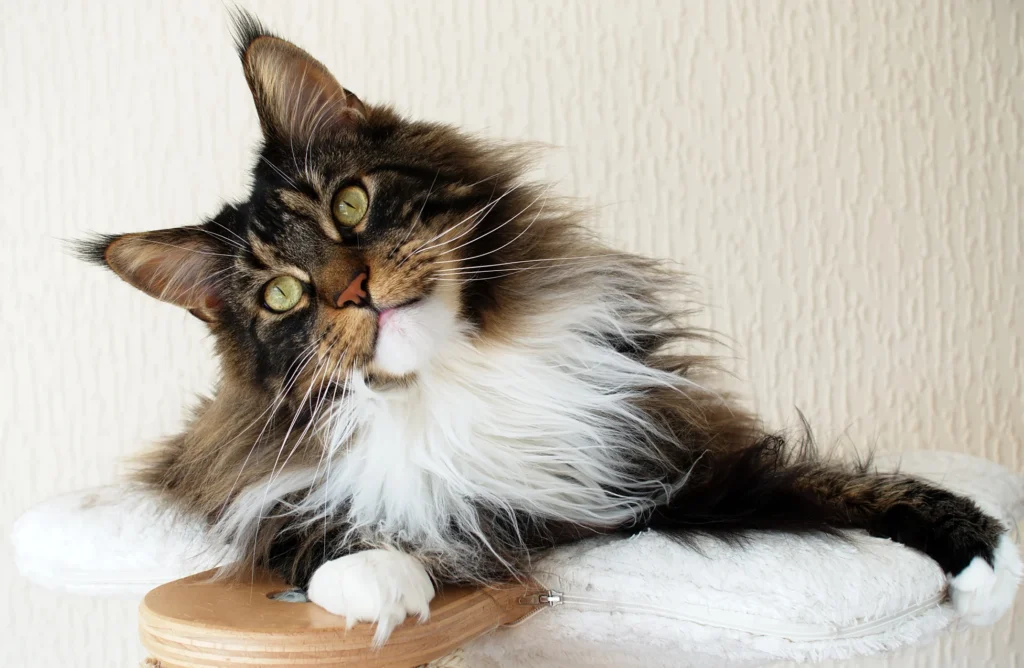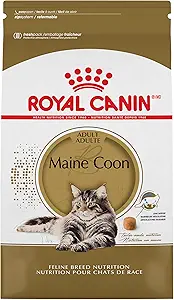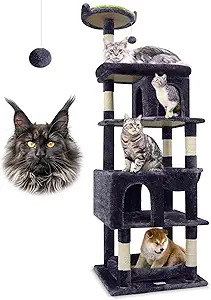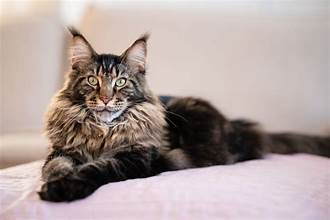Maine Coon cats, often referred to as the “gentle giants” of the feline world, are one of the most popular and beloved cat breeds. Known for their large size, luxurious fur, and friendly personalities, Maine Coons make excellent companions. In this blog post, we’ll delve into their dietary needs, activity levels, and common medical issues to help you provide the best care for your furry friend.
Dietary Needs
Maine Coon cats have specific dietary requirements that ensure they remain healthy and thrive.

High-Quality Protein:
Due to their large size and muscular build, Maine Coons require a diet rich in high-quality animal protein. Look for cat foods where the primary ingredient is meat, such as chicken, turkey, or fish.
Healthy Fats:
Fats are essential for maintaining their thick, luscious coats and overall energy levels. Omega-6 and Omega-3 fatty acids are particularly beneficial.
Controlled Carbohydrates:
Cats are obligate carnivores but can tolerate some carbohydrates. However, it’s essential to ensure that carbs are limited and come from high-quality sources like sweet potatoes or brown rice.

Adequate Hydration:
Maine Coons are prone to urinary tract issues, so it’s crucial to encourage proper hydration. Wet cat food can be a great way to ensure they get enough moisture in their diet.
Portion Control:
Due to their large size, it’s easy to overfeed Maine Coons. Be aware of portion sizes and monitor their weight to prevent obesity.
Activity Level
Maine Coons are active and playful cats, often described as “dog-like” in their behavior.
Playtime:
They enjoy interactive play and can spend hours chasing laser pointers, playing with feather toys, or pouncing on balls. Daily play sessions are crucial to keep them mentally and physically stimulated.
Climbing and Scratching:
Maine Coons love to climb and scratch. Providing them with a tall cat tree and scratching posts can satisfy these natural behaviors and keep them entertained.

Social Interaction:
These cats are highly social and enjoy spending time with their human companions. They often follow their owners around the house and engage in playful antics to gain attention.
Medical Issues
Like all breeds, Maine Coons are prone to specific health issues. Awareness of these can help you take preventive measures and seek early treatment when necessary.

Hypertrophic Cardiomyopathy (HCM):
This is a common heart disease in Maine Coons, characterized by the thickening of the heart walls. Regular veterinary check-ups and echocardiograms can help in early detection.
Hip Dysplasia:
This genetic condition affects the hip joints and mobility issues and can lead to arthritis. Keeping the hip joints healthy and giving them joint supplements can help manage this condition.
Spinal Muscular Atrophy (SMA):
This is a hereditary condition affecting the spinal cord and muscle development. While it does not cause pain, it can affect mobility. Genetic testing can identify carriers of the gene responsible for SMA.
Polycystic Kidney Disease (PKD):
This condition can cause cysts to form in the kidneys, potentially leading to kidney failure. Regular blood tests and ultrasounds can help monitor kidney health.
Dental Issues:
Maine Coons are prone to dental problems, including gingivitis and periodontal disease. Regular dental check-ups and at-home teeth cleaning can help prevent these issues.
Conclusion
Maine Coon cats are a delightful and majestic breed that requires specific care to ensure they lead healthy and happy lives. You can enjoy many wonderful years with your gentle giant by providing a balanced diet, engaging them in regular play, and staying vigilant about their health. Consult with your veterinarian for personalized advice tailored to your Maine Coon’s needs.



